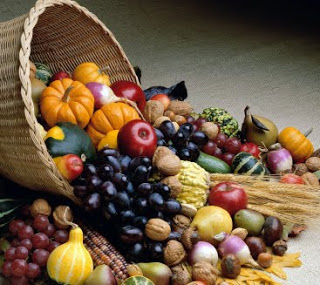Readings – Psalm 23
1 John 3:16-24
John 10:11-18
I have been looking at the list of ‘special’ Sundays in Methodism.
There are fourteen of them. They could be called special interests Sundays, asking worshippers to remember aspects of the church’s beliefs and commitments that otherwise might be forgotten. Today is one of them -Vocations Sunday.
Prospective Methodist ministers are required to give an account of their ’call’ to ministry and the more imaginative or religious of us come up with stories of dramatic moments of revelation that turns us into little St.
Paul’s or Martin Luther’s, all of them doubtless true. I have such a story rooted to an occasion and although insufficient alone to keep me going for 60 years, it was where it all began for me, and I value the moment. A call from God is not restricted to members of the clergy of course. There is a personal vocation for all of us and a general one which everyone shares. You may recall signposts on the way to your discipleship and significent moments when there was a sense of new direction. It may be a bit too generalised for we are not all the same, but one name that could be given to the Christians is that they are ‘The Called Ones’.
Pursuing the theme, do today’s readings help us to identify and refresh our sense that we are what and where and who we are because that’s what God wants for us?
Psalm 23
Throw out all the rest and if only one of the psalms is to remain, this is the one many of us would settle with.
It’s about total dependence on God. He is the one who fulfils all our wants. There are strong words of love certainly but also intimations of control. He ‘makes’, he leads’, he ‘prepares’, he ‘anoints’. But the main tenor of the psalm is companionship. Life is a journey, we are never alone and even when the valley is dark and you are surrounded by enemies, the Lord is with you.
Many of the other psalms dare to doubt that. It’s precisely a sense of loneliness and desertion that makes many of the psalmists cry out for help or even vexation at the neglect of God. And we have known that feeling perhaps. But what God promises, he fulfils. John Wesley begins his notes on the opening verses of the Letter to the Romans –‘Paul, a servant of Jesus Christ, called to be an apostle’ – with the comment ‘While God calls, he makes what he calls.’ So our vocation is something that once begun is a continuous pilgrimage with God. Not a moment of decision followed by years of looking backwards, but a life of grace sustained by the dependable promises of God. ‘He makes what he calls’.
1 John 3:16-24
But this is a life not of self-satisfaction but of action. Love is more than word or speech says the writer of John’s letter, the truth of it is found in how you live and how you care for others. You are called not to spend your life enjoying favour and privilege but giving pleasure to God by fulfilling his commandments. I saw a T shirt in a local shop with the words ‘God loves everyone – but I’m his favourite’. Too many people have built theologies on that belief. ‘Once I’ve got the good opinion of God, that’s it’. As if faith is the end instead of the beginning. If God has favouritism it is comprehensively inclusive –not some of us out but all of us. In other words, no favouritism; all are favoured.
There’s hardly a day that goes by when amongst all the manipulative offers of credit facilities that come through our letter box at home – as well as the promise of the best pizza’s you can buy and the Co-ops latest price cuts- there isn’t also an appeal for often immensely needy causes. There is so much dire need in the world! You would go mad as well as have no bread to eat if you responded to only a fraction of them. This is the nagging never-ending pain of vocation!
And yet this is where our vocation draws us -to practical love. We had this rather odd event at a Circuit church in March – an afternoon especially for carers, for people who in one way or another are helping to look after people in the churches and their local communities. As a group of us began to organise how the time together could be spent, we realised that what we were planning was indeed a definition of the Church –a community of people who care. We can never do it all and we can never do enough, but nor are we are ever left off the hook of conscientious love – within and beyond the church.
John 10:11-21 ( Sacrifice)
Back to the sheep and shepherd image in the gospel reading, but here with a more sober tone. Here there is conflict and a conflict which will be met not with violence or desertion, but with sacrifice. The good shepherd lays down his life for the sheep. You will remember the eastern custom where the shepherd is himself the gate to the fold. An enemy wanting to get to the sheep has to get to the shepherd first. He puts his life into danger for their sake. And here in John the simile is extended to picture a community far greater than the immediate one – there are other sheep who are not of the fold.
We can never know how much of John’s gospel is reportage or how much reflection. The general opinion is that it is much more an extended mediation on the significance of Jesus than a description of his life, ministry, death and resurrection. We don’t have to leave it to the wisdom or whatever of the scholars. Just by reading John’s gospel one is aware of marked differences between this and the other three. So here the death of Jesus is anticipated within the familiar pastoral parable. His life is not taken from him – he has the power to give it, as he has the power to take it up again.
I asked them to be read this morning, but the last verses we heard are not included in the lectionary reading, which I think is a pity. As if we have to escape from the immediate controversy which is what happened when Jesus was around. His hearers divided, some saying Jesus was demonic, out of his mind and shouldn’t be listened to, others arguing that healing someone who brings sight to the blind can’t be anything but good. Controversy followed him in life and has been a mark of the cutting edge of the gospel ever since. This is strange stuff and it’s no surprise that Jesus should be thought of as mad or demonic. Beware a sanitised Jesus, reducing him to a religious talisman who supplies all our needs and creates a total absence of questions and uncertainties, so that he sets the agenda and we follow it and there are no problems to wrestle with.
For example I feel that the traditional emphasis on the death of Jesus as being caused by the will of God – and its there in scripture – threatens to deny that Jesus had a mind of his own, himself struggling to find his destiny, rejecting the idea that he should lead the insurrection that some people expected of him. ‘Down with the Romans,’ ‘Purge the Temple’. It was the cry of many messiahs, but not his.
To see Jesus as the Saviour born only to die – a sacrificial lamb absolving the sins of humanity – also denies the freedom of religious and political leaders often in unholy alliance to do the wrong thing. We are here into one of the difficult in-balances of theology – does history make itself or does God make history? We want to hold on to both possibilities – God was in it all the way but he was not, surely, manipulating events as if he was the master and everyone else were puppets in his hands. We have to work this one out for ourselves. The bible is indeed a book full of stories, but not all of them are of equal value and they have to be read through the eyes of your contemporary knowledge and experience.
Back to our theme -, vocation, which supremely for Jesus involved sacrifice and means for us we speak for love rather than hatred, conciliation rather than aggression, argument rather than force, actual reality not virtual reality; that we examine our instinctive attitudes and bring them under the searching light of the gospel.
Our sacrifice is unlikely to be anywhere near to how it was for Jesus, but like him we may not always be understood. We face the scorn of atheists and fundamentalists of all sorts and sizes, and the uncritical secularism that shapes the life of our age, though which perhaps – and there are few signs of it!- may bring us to a new level of realism.
So, what does God want you to do with your life? Or, to put it differently, what are the ways in which you fulfil yourself and employ the skills you possess? In the church, in your closest relationships, in your time alone and with others who are dear to you. How is your life a blessing to others, and faithful to your vision of God and the good life? What is our vocation? If we are the ‘called out’, to where does God send us ‘back’?
Finally, has vocation to do with age? God only able to break through to us, when we are young. It may be so but I hope it isn’t. Unlike our culture, God doesn’t worship youth and is not limited by the bright eyed expectations of the young. The great challenge for mature people is not to say ‘its all over, I’ve lost touch with some of the things I once believed in and sometimes I feel that God has lost touch with me’. O.K., Samuel was young when the voice of God called him – and it took him enough time to get round to hearing and identifying the voice. Remember Abraham and Sarah, they were no spring chickens. Have those of us who are older stopped listening for it?
That hymn ‘I the Lord of sea and sky’ with its chorus –
‘Here I am Lord. Is it I, Lord?
I have heard you calling in the night.
I will go, Lord, if you send me;
I will hold your people in my heart.’
So -keep listening.?
Your usefulness to God is not over. It may be near to its new beginning.





